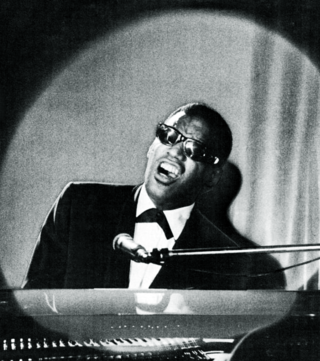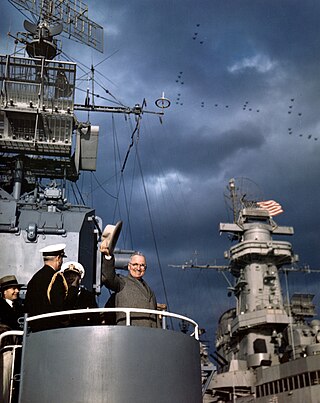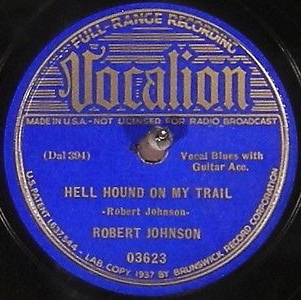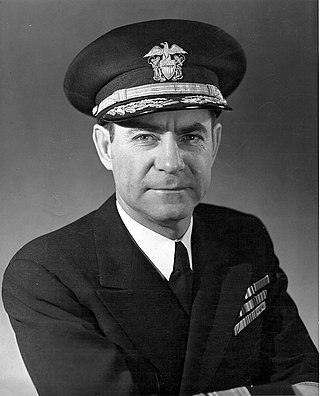
Soul music is a popular music genre that originated in African-American communities throughout the United States in the late 1950s and early 1960s. It has its roots in African-American gospel music and rhythm and blues. Soul music became popular for dancing and listening, and U.S. record labels such as Motown, Atlantic and Stax were influential in its proliferation during the civil rights movement. Soul also became popular worldwide, directly influencing rock music and the music of Africa. It had a resurgence in the mid-to late 1990s with the subgenre neo soul, which incorporated modern production elements and hip hop influences.

Walter Winchell was a syndicated American newspaper gossip columnist and radio news commentator. Originally a vaudeville performer, Winchell began his newspaper career as a Broadway reporter, critic and columnist for New York tabloids. He rose to national celebrity in the 1930s with Hearst newspaper chain syndication and a popular radio program. He was known for an innovative style of gossipy staccato news briefs, jokes, and Jazz Age slang. Biographer Neal Gabler claimed that his popularity and influence "turned journalism into a form of entertainment".

USS Forrestal (CVA-59), was a supercarrier named after the first United States Secretary of Defense James Forrestal. Commissioned in 1955, she was the United States' first completed supercarrier, and was the lead ship of her class. The other carriers of her class were USS Saratoga, USS Ranger and USS Independence. She surpassed the World War II Japanese carrier Shinano as the largest carrier yet built, and was the first designed to support jet aircraft.

James Vincent Forrestal was the last Cabinet-level United States Secretary of the Navy and the first United States Secretary of Defense.

Andrew Russell Pearson was an American columnist, noted for his syndicated newspaper column "Washington Merry-Go-Round". He also had a program on NBC Radio titled Drew Pearson Comments. He was known for his approach towards high-level politicians, such as senators, cabinet members, generals and American presidents.

Containment was a geopolitical strategic foreign policy pursued by the United States during the Cold War to prevent the spread of communism after the end of World War II. The name was loosely related to the term cordon sanitaire, which was containment of the Soviet Union in the interwar period.

The "X Article" is an article, formally titled "The Sources of Soviet Conduct", written by George F. Kennan and published under the pseudonym "X" in the July 1947 issue of Foreign Affairs magazine. It introduced the term "containment" to widespread use and advocated the strategic use of that concept against the Soviet Union. It expanded on ideas expressed by Kennan in a confidential February 1946 telegram, formally identified by Kennan's State Department number, "511", but informally dubbed the "long telegram" for its size.

The "Revolt of the Admirals" was a policy and funding dispute within the United States government during the Cold War in 1949, involving a number of retired and active-duty United States Navy admirals. These included serving officers Admiral Louis E. Denfeld, Chief of Naval Operations, and Vice Admiral Gerald F. Bogan, as well as Fleet Admirals Chester Nimitz and William Halsey, senior officers during World War II.

"Vive le Québec libre !" was a phrase in a speech delivered by French President Charles de Gaulle in Montreal, Quebec on July 24, 1967, during an official visit to Canada for the Expo 67 world's fair. While giving an address to a large crowd from a balcony at Montreal City Hall, he uttered "Vive Montréal ! Vive le Québec !" and then added, followed by loud applause, "Vive le Québec libre !" with particular emphasis on the word libre. The phrase, a slogan used by Quebecers who favoured Quebec sovereignty, was seen as giving his support to the movement.
A useful idiot or useful fool is a pejorative description of a person, suggesting that the person thinks they are fighting for a cause without fully comprehending the consequences of their actions, and who does not realize they are being manipulated by the cause's leaders or by other political players. The term was often used during the Cold War to describe non-communists regarded as susceptible to communist propaganda and psychological manipulation. A number of authors attribute this phrase to Vladimir Lenin, but this attribution is not supported by any evidence. Similar terms exist in other languages.

Mass suicide is a form of suicide, occurring when a group of people simultaneously kill themselves. Mass suicide sometimes occurs in religious settings. In war, defeated groups may resort to mass suicide rather than being captured. Suicide pacts are a form of mass suicide that are sometimes planned or carried out by small groups of depressed or hopeless people. Mass suicides have been used as a form of political protest.

"Dust My Broom" is a blues song originally recorded as "I Believe I'll Dust My Broom" by American blues artist Robert Johnson in 1936. It is a solo performance in the Delta blues-style with Johnson's vocal accompanied by his acoustic guitar. As with many of his songs, it is based on earlier blues songs, the earliest of which has been identified as "I Believe I'll Make a Change", recorded by the Sparks brothers as "Pinetop and Lindberg" in 1932. Johnson's guitar work features an early use of a boogie rhythm pattern, which is seen as a major innovation, as well as a repeating triplets figure.

"Hellhound on My Trail" is a blues song recorded by Mississippi Delta bluesman Robert Johnson in June 1937 and released as a 78 rpm single on Vocalion Records that September. It was inspired by earlier blues songs and blues historian Ted Gioia describes it as one of Johnson's "best known and most admired performances—many would say it is his greatest".

Michael Vincent Forrestal was one of the leading aides to McGeorge Bundy, the National Security Advisor of President John F. Kennedy. He was seen as a pivotal figure in the changing of U.S. foreign policy, including recommending support for the coup d'état that deposed the first president of South Vietnam, Ngô Đình Diệm.

On 29 July 1967, a fire broke out on board the aircraft carrier USS Forrestal after an electrical anomaly caused a Zuni rocket on an F-4B Phantom to fire, striking an external fuel tank of an A-4 Skyhawk. The flammable jet fuel spilled across the flight deck, ignited, and triggered a chain reaction of explosions that killed 134 sailors and injured 161. At the time, Forrestal was engaged in combat operations in the Gulf of Tonkin, during the Vietnam War. The ship survived, but with damage exceeding US$72 million, not including the damage to aircraft. Future United States Senator John McCain and future four-star admiral and U.S. Pacific Fleet Commander Ronald J. Zlatoper were among the survivors. Another on-board officer, Lieutenant Tom Treanore, later returned to the ship as her commander and retired an admiral.

The early life and military career of John Sidney McCain III spans the first forty-five years of his life (1936–1981). McCain's father and grandfather were admirals in the United States Navy. McCain was born on August 29, 1936, in the Panama Canal Zone, and attended many schools growing up as his family moved among naval facilities. McCain graduated from the United States Naval Academy in 1958. He married the former Carol Shepp in 1965; he adopted two children from her previous marriage and they had another child together.

The Charge of the Light Brigade was a military action undertaken by British light cavalry against Russian forces during the Battle of Balaclava in the Crimean War, resulting in many casualties to the cavalry. On 25 October 1854, the Light Brigade, led by Lord Cardigan, mounted a frontal assault against a Russian artillery battery which was well-prepared with excellent fields of defensive fire. The charge was the result of a misunderstood order from the commander-in-chief, Lord Raglan, who had intended the Light Brigade to attack a different objective for which light cavalry was better suited, to prevent the Russians from removing captured guns from overrun Turkish positions. The Light Brigade made its charge under withering direct fire and reached its target, scattering some of the gunners, but was forced to retreat immediately.

Admiral John Edward Gingrich was an officer in the United States Navy who served as the first chief of security for the United States Atomic Energy Commission from 1947 to 1949, and as Chief of Naval Material from 1953 to 1954. He retired from the Navy as a four-star admiral.

Rear Admiral Morton Claire Mumma, Jr. was a senior officer in the United States Navy. He was awarded the Navy Cross for actions on 13 December 1941 while commanding USS Sailfish (SS-192) during World War II. He later served as naval aide to Secretary James Forrestal in 1944–45, and retired in 1946. Mumma was president of the National Rifle Association from 1955 to 1957, and at his death was on the association's executive council.

Korean Air Lines Flight 007 alternative theories concerns the various theories put forward regarding the shooting down of Korean Air Lines Flight 007. The aircraft was en route from New York City via Anchorage to Seoul on September 1, 1983, when it strayed into prohibited Soviet airspace and was shot down by Soviet fighter jets.



















